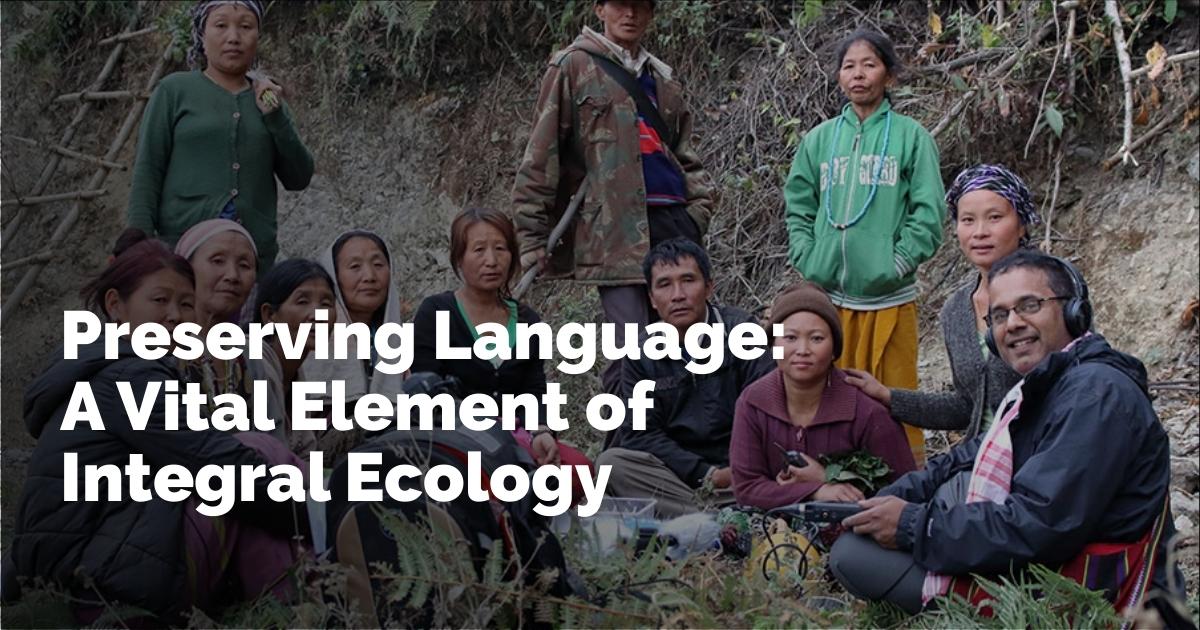Language Protection as Integral Ecology
Preserving and protecting endangered languages worldwide is emerging as a crucial aspect of both human rights and ecological conservation. At the intersection of linguistic preservation and ecological responsibility lies a remarkable initiative that connects the storied University of Oxford with the vibrant and diverse tribes of the Himalayan foothills in Northeast India, particularly focusing on the endangered Hrusso Aka language. This endeavor reflects a broader commitment to preserving cultural diversity and ecological harmony.
Rediscovering Diversity in Northeast India
The Laudato si’ Research Institute, based at Campion Hall, is at the forefront of this linguistic preservation initiative. Collaborating with Fr. Vijay D’Souza, SJ, the project focuses on communities with endangered languages, anchoring on the critical perspective that language rights intertwine with human rights. Fr. Vijay D'Souza, with over two decades of expertise in these fields, has spearheaded this mission, delving deep into the realms of linguistics to preserve and revitalize languages like Hrusso Aka.
The drive to conserve endangered languages doesn't only concern academics; it embodies an urgent appeal to safeguard entire cultures. Languages hold within them unique worldviews, rich traditions, and invaluable insights into human existence, which Fr. Vijay underscores as integral to our shared humanity and ecological wisdom. Through comprehensive documentation involving sacred mythologies, oral traditions, and community interactions, he facilitates the creation of educational resources that empower these communities to thrive in their linguistic heritage.
Challenges in Language Revitalization
The journey of preserving the Hrusso Aka language reveals layered challenges. Nestled within the linguistically diverse state of Arunachal Pradesh, a region with nearly a hundred indigenous tribes, the Hrusso Aka tribe stands out with its unique language spoken by approximately seven thousand people. Initiated in response to a request from the local villagers for a school, Jesuit endeavors began in 1988, marking the start of a mission keenly focused on cultural and educational upliftment.
However, the path was fraught with obstacles. The Hrusso Aka language was not scripted, necessitating innovative, alternative learning methodologies, independent of conventional linguistic tools like grammar books or dictionaries. Additionally, a prevalent sense of pessimism loomed over the language's viability, even among native speakers, hinting at an internalized undervaluation of linguistic heritage and identity.
Collaboration: A New Academic Paradigm
In response to these challenges, there has been a gradual but decisive shift in how linguists engage with endangered languages. Dr. Sarah Ogilvie, a fellow at Campion Hall, emphasizes the importance of collaboration and capacity building in contemporary linguistic practice. This approach respects the autonomy of heritage communities, ensuring they determine the trajectory of their language preservation activities while linguists offer support and learning opportunities.
This collaborative framework fosters a spirit of mutual respect and empowerment, where communities lead their conservation efforts with renewed confidence, setting agendas and making pivotal decisions about their linguistic futures.
Language: An Ecological and Human Rights Imperative
Understanding endangered languages solely as a human rights challenge would be an oversight. This issue reverberates with significant ecological implications. As much as 90% of the world's languages face the threat of extinction within a century, language preservation emerges as a crucial factor in addressing environmental crises and combating deepening socio-economic challenges.
Recognizing this reality, the partnership forged between the Laudato si’ Research Institute and the North Eastern Institute for Language and Culture, established by Fr. Vijay, offers critical scholarly and practical backing for these language preservation efforts. Their resources include comprehensive databases, instructional materials, and collaborative opportunities, highlighting the integral relationship between language, culture, and ecology.
Timber Poaching: The Invisible Threat
Beyond the mountains of India, Jesuit efforts extend to other pressing ecological concerns, such as combatting timber poaching in Nigeria. Timber poaching, driven largely by illegal logging and a lack of sustainable agricultural practices, poses a formidable threat to local ecosystems. Jesuits in Nigeria are addressing this crisis through agricultural education and support, encouraging sustainable practices that benefit both human communities and the natural environment.
Ecological Renewal in Sri Lanka
Similar initiatives are unfolding in Sri Lanka, where a Jesuit-run ecological center is revitalizing communities by promoting environmental awareness and sustainable practices. Gradual changes, fueled by education and community engagement, are creating more livable environments and fostering positive social changes. The smiles that are emerging reflect the tangible impact of these ecological interventions on community well-being.
A Season of Creation
Part of this global effort includes the Season of Creation, celebrated annually by the Christian community between September 1 and October 4. This period serves as a powerful reminder of our communal responsibility to care for the planet. With themes centered around prayer, contemplation, and action, it encourages a deeper appreciation for the interconnectedness of all creation and an acknowledgment of environmental stewardship as a shared duty.
The Spiritual Aspect of Ecology
Jesuit spirituality, too, aligns closely with ecological consciousness. Throughout their history, Jesuits have acknowledged the sacredness of nature, recognizing ecological concerns as vital to their spiritual mission. The 35th General Congregation in 2008 marked a more formal acknowledgment of ecological issues, echoing sentiments initially expressed in 1995. The effort to reconcile spiritual life with ecological responsibility remains a core endeavor of the Society of Jesus.
Interfaith Ecological Retreats: Spirituality and Environment
In transformative ventures bridging spirituality and ecology, Jesuit-led interfaith retreats draw inspiration from the core teachings of the Encyclical letter, Laudato si’. These retreats, such as the one held in northern Brazil, foster encounters between participants and the natural world, promoting spiritual growth through profound engagement with ecological landscapes. In doing so, they offer a rich tapestry of insights that underscore the divine presence within all creation, nurturing an ecumenical dialogue centered on ecological care.
To Conclude
The language preservation initiatives, ecological explorations, and spiritual undertakings of the Jesuits underline a multifaceted, deeply integrated approach to caring for our common home. These endeavors invite reflection on the inextricable links between cultural diversity, ecological stewardship, and human rights, urging us toward a future marked by respect, sustainability, and global solidarity.
출처 : Original Source

